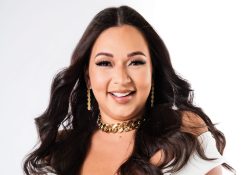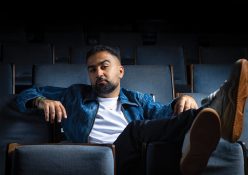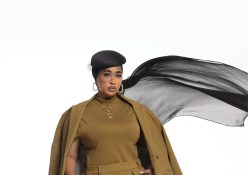Kerry Washington has gone from nameless-character actress to one of the most prolific stars of the last decade – all while trying to change the world. But what else would you expect from The Fixer?
Did you realise that your favourite take-no-nonsense TV star was also in your favourite movie as a teenager Save the Last Dance? How about as Angelina’s best friend in Mr & Mrs Smith? Or in anything from NYPD Blue and Boston Legal to Ray (opposite Jamie Foxx) and The Last King of Scotland (with Forest Whitaker)?
Kerry Washington’s flawless face has been popping up on our screens since the early noughties, mainly in supporting roles and bit parts – but her leading-star potential remained largely untapped. ‘I was, for most of my career, able to be invisible,’ she told Elle US in 2016. ‘For some reason, people never connected that the girl from Ray was the same girl from The Last King of Scotland.’
That is until creator of Grey’s Anatomy and How to Get Away With Murder (and arguably the person who’s created the most complex and diverse female TV characters in recent years) Shonda Rhimes put her front and centre in our living rooms every week. ‘Television changed the game,’ she admits. ‘Coming into people’s houses on a weekly basis is just a different kind of relationship to the public.’

‘It’s been handled’
Bronx-born Kerry became a part of our lives in 2012 as top Washington DC crisis manager Olivia Pope (whose personal life may have needed a little fixing of its own) in The Fixer (or Scandal as it’s known outside South Africa. The name was changed so local audiences wouldn’t confuse it with the e.tv daytime drama of the same name). The show, which came to an end after seven seasons earlier this year, was a critical and commercial hit, and broke ground as one of the first primetime shows to have a woman of colour as the lead character. It’s a legacy that Kerry is extremely proud of: ‘I think the fact that, in my lifetime, there had not been a black woman at the lead of a television show and now everywhere you look, every single network has women of colour helming shows. I think that will be part of the legacy of the show,’ she told the Los Angeles Times. Kerry was also the first black woman to be nominated for a Primetime Emmy award for a lead role in nearly 20 years.
Going from playing the best friend or wife of ‘bigger’ stars, to redefining women’s roles in film and TV is a huge responsibility to carry for any actress. But apart from her big deer-like eyes, envy-inducing lips and movie-star smile, a lot of what makes the 41-year-old actress so appealing to viewers is her graceful and quiet confidence – a trait she credits heavily to her kick-ass on-screen persona: ‘There are things that Olivia Pope has given me that will always stay with me,’ she said ahead of the airing of the last episode of The Fixer in April. ‘She has changed me. I don’t know if I would have had kids at this point in my life if she didn’t make me feel like anything is possible. I feel like she’s given me a lot of courage. So, I’ll keep that courage. I’m going to have to say bye to the Prada purses, but not goodbye to the courage – and the courage is more important.’

Finding her power
Another characteristic she proudly shares with Olivia is that she doesn’t play by the rules. Keeping her private life private, for example, is an act of rebellion in Hollywood these days, but it’s a vow she made with her husband, former football player Nnamdi Asomugha, to never speak publicly about their relationship or two children, daughter Isabelle, four, and son Caleb, two. ‘I have girlfriends in this business who talk about their personal lives, and it works for them, and I love it. But not for me,’ she says. ‘I learnt through experience that it doesn’t work for me.’ And it’s a trait that has allowed her to instead use her fame to highlight far more pressing issues than the usual celebrity-tabloid fodder.
Known for being an advocate for inclusivity, better representation and for people who may not have the power to advocate for themselves, Kerry prefers to use her public profile as an activist to bring attention to some worthy – and in the current US political climate, timely – causes, such as domestic violence and the #TimesUp movement. ‘Having your story told as a woman, as a person of colour, as a lesbian or as any member of any disenfranchised community is sadly often still a radical idea,’ she said in her acceptance speech for the GLAAD Vanguard Award in 2015. ‘There is so much power in storytelling, and there is enormous power in inclusive storytelling, in inclusive representations… We must see each other, all of us, and we must see ourselves, all of us. We have to continue to be bold and break new ground until that is just how it is, until we are no longer “firsts” and “exceptions” and “rare”.’
For the full feature on Kerry Washington, grab your October issue of Balanced Life.







